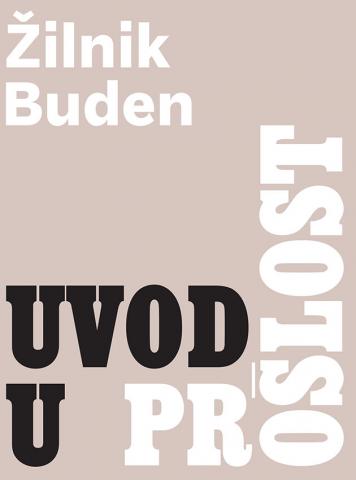Boris Buden, Želimir Žilnik, kuda.org, et al.: Uvod u prošlost (2013) [Serbian]
Filed under book | Tags: · avant-garde, cinema, cultural history, culture, film, politics, yugoslavia

“Ovo je knjiga koja se naizgled bavi jednim sasvim određenim segmentom prošlosti, nečime što se je nekada zvalo kulturna povijest. No, tu kulturnu povijest ona ne tretira kao posebnu disciplinu historiografije koja za svoj predmet uzima ono što je u prošlosti steklo status kulturnog dobra. Za ovu knjigu kulturna povijest je sama forma u kojoj nam se danas ukazuje prošlost. U mjeri u kojoj smo svjesni prošlosti, svjesni smo je kao kulture.
Konkretno, kada se u ovoj knjizi govori o kulturnoj proizvodnji bivše Jugoslavije, o filmovima, odnosno o takozvanom filmskom jeziku redatelja Želimira Žilnika, kada se u njoj raspravlja o sukobima u kulturi, njihovim akterima, odnosu politike i umjetnosti, o ekonomskim pretpostavkama filmske produkcije i njenim društvenim efektima, onda se o tome ne govori u disciplinarnom smislu jedne, recimo, povijesti jugoslavenskog filma, odnosno, individualnog filmskog djela određenog redatelja, pri čemu kategorije društva, politike i ekonomije služe kontekstualizaciji jednog po sebi čisto kulturnog narativa. Kultura se ne zbiva u nekakvom unaprijed zadanom ekonomskom, političkom i društvenom kontekstu; ona je kao takva uvijek već i ekonomska činjenica i politički faktor i društveni proizvod. Ona nam ne govori o tome kakva je prošlost doista bila, nego jest ta prošlost u njenoj prisutnosti, aktualnosti, neizvjesnosti, otvorenosti. Ona je prošlost s onu stranu njene razlike spram sadašnjosti i budućnosti.” (Iz predgovora)
Publisher Centar za nove medije_kuda.org, Novi Sad, September 2013
kuda.read series
Copyleft license
ISBN 9788688567077
221 pages
Roswitha Mueller: Bertolt Brecht and the Theory of Media (1989)
Filed under book | Tags: · aesthetics, cinema, film, film theory, media, media theory, opera, politics, radio, theatre

Bertolt Brecht spent a career puncturing artistic illusion while casting a spell as an innovator that has continued since his death in 1956. Best known to theater goers for “The Threepenny Opera,” “Mother Courage and her Children,” “The Caucasian Chalk Circle” and other production, the great playwright was, in fact, a man of all media. He was interested in radio and the cinema as soon as they appeared in Europe and brought to them, as well as to the stage, a dramatic theory so radical and influential that it has come to be known by the adjective “Brechtian.”
Publisher University of Nebraska Press, Lincoln & London, 1989
Modern German Culture and Literature series
ISBN 0803231326, 9780803231320
149 pages
Reviews: Katie Trumpener, Susan Bennett (Theatre Research International).
PDF (no OCR)
Comment (0)Doreen Massey: For Space (2005)
Filed under book | Tags: · architecture, city, geography, globalisation, neoliberalism, place, politics, space, time

“In this book, Doreen Massey makes an impassioned argument for revitalising our imagination of space. She takes on some well-established assumptions from philosophy, and some familiar ways of characterising the twenty-first century world, and shows how they restrain our understanding of both the challenge and the potential of space.
The way we think about space matters. It inflects our understandings of the world, our attitudes to others, our politics. It affects, for instance, the way we understand globalisation, the way we approach cities, the way we develop, and practice, a sense of place. If time is the dimension of change then space is the dimension of the social: the contemporaneous co-existence of others. That is its challenge, and one that has been persistently evaded. For Space pursues its argument through philosophical and theoretical engagement, and through telling personal and political reflection. Doreen Massey asks questions such as how best to characterise these so-called spatial times, how it is that implicit spatial assumptions inflect our politics, and how we might develop a responsibility for place beyond place.
This book is “for space” in that it argues for a reinvigoration of the spatiality of our implicit cosmologies. For Space is essential reading for anyone interested in space and the spatial turn in the social sciences and humanities. Serious, and sometimes irreverent, it is a compelling manifesto: for re-imagining spaces for these times and facing up to their challenge.”
Publisher Sage, 2005
ISBN 1412903610, 9781412903615
222 pages
Review: Matthew Sparke (Progress in Human Geography).
Commentary: Ben Anderson.
PDF (no OCR, updated on 2021-1-25)
Comments (2)
